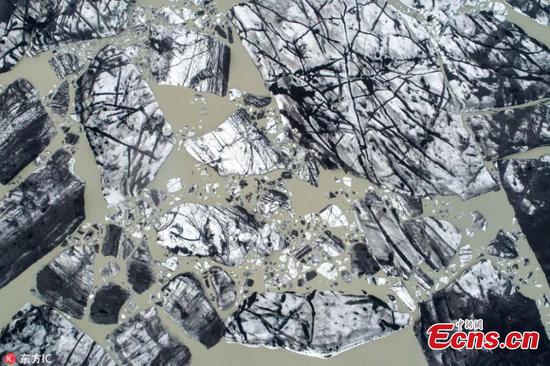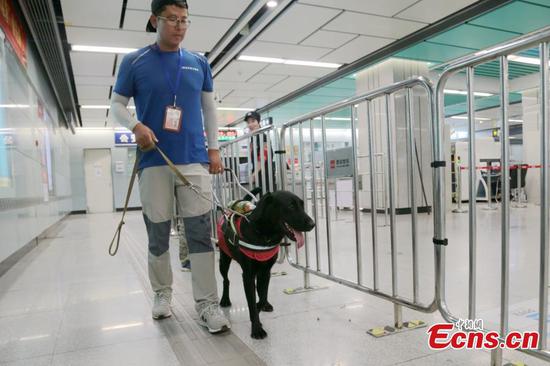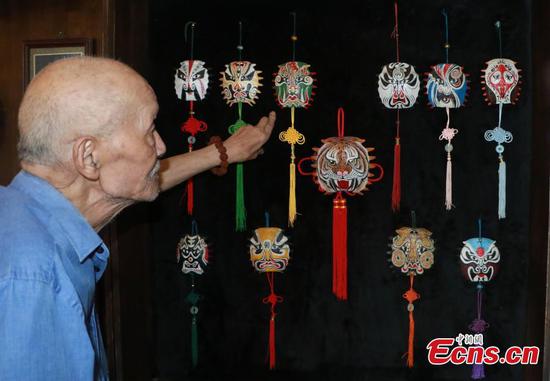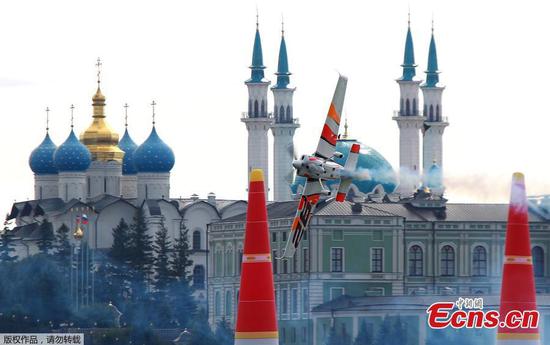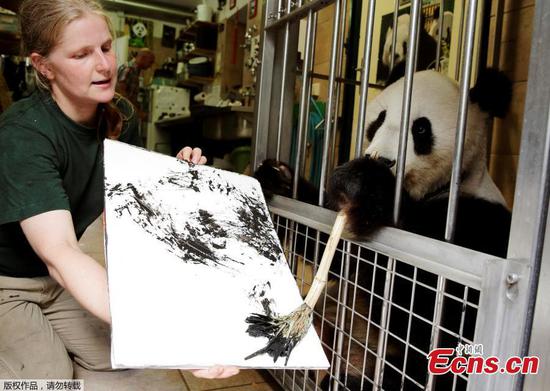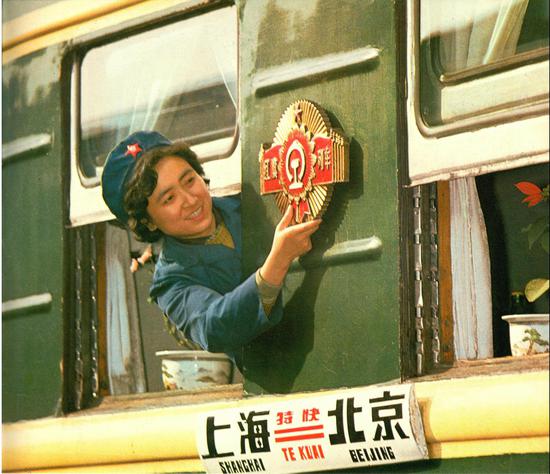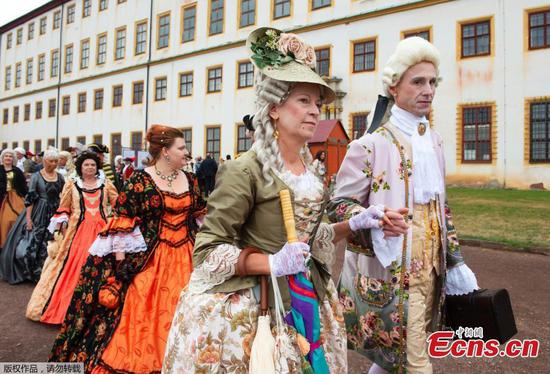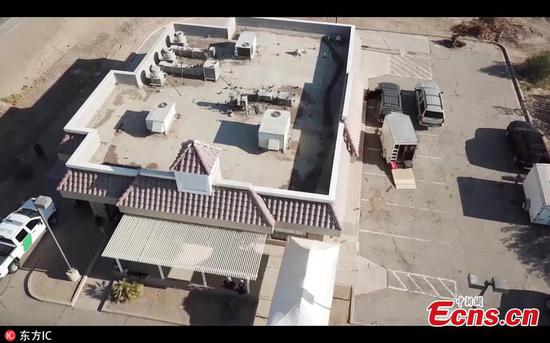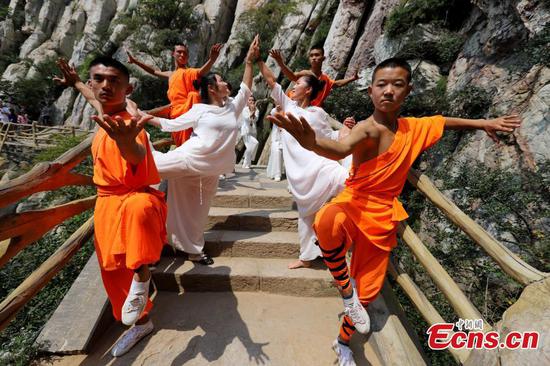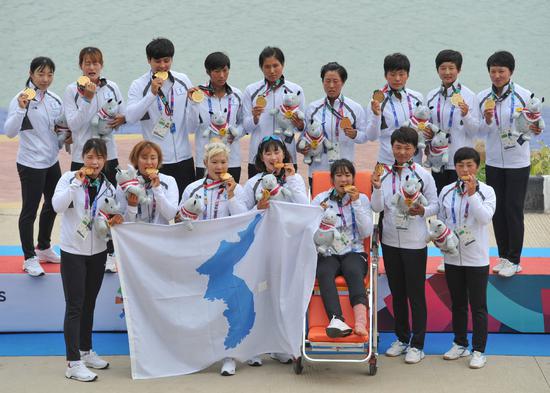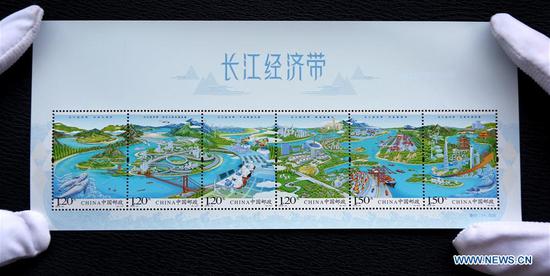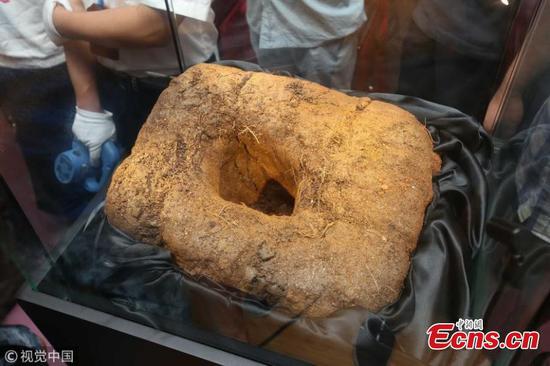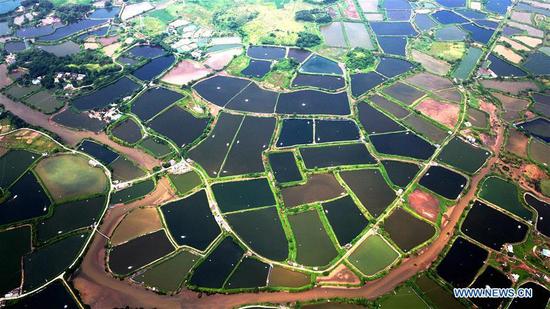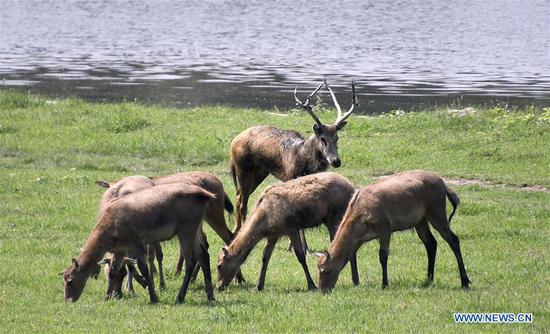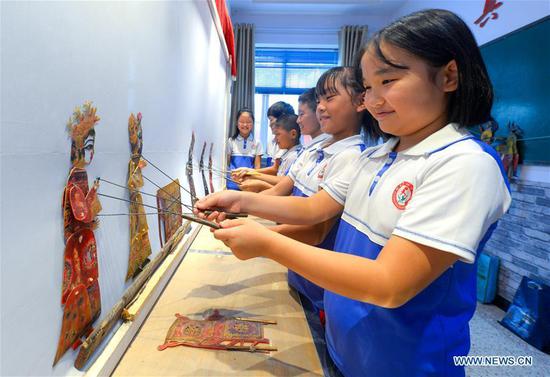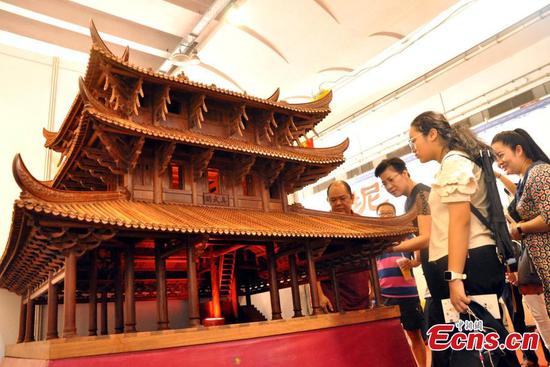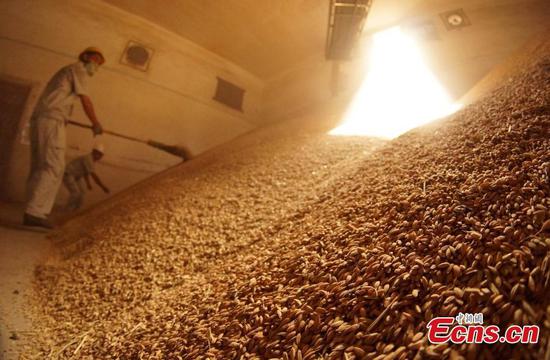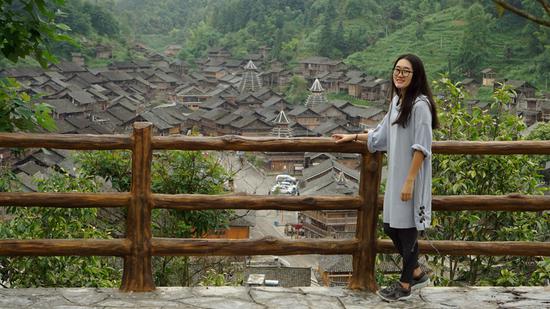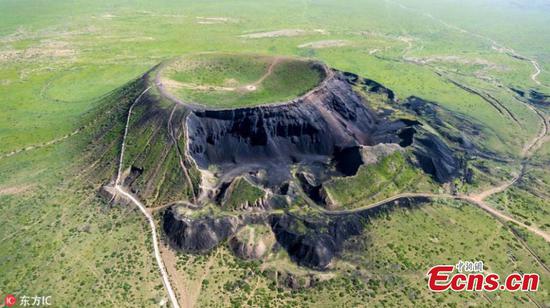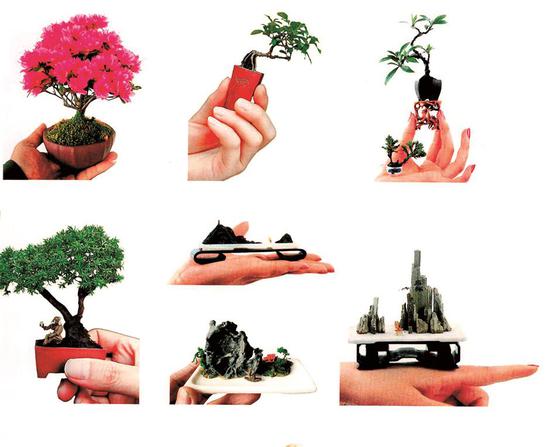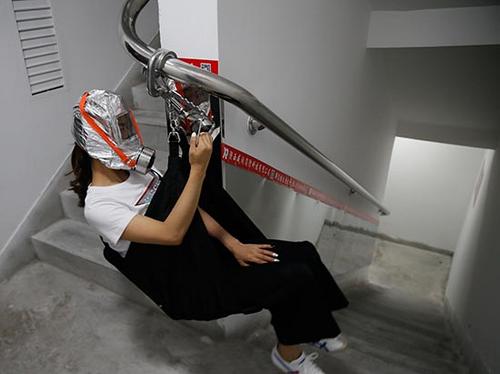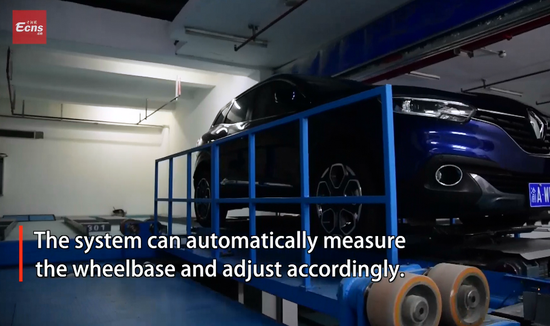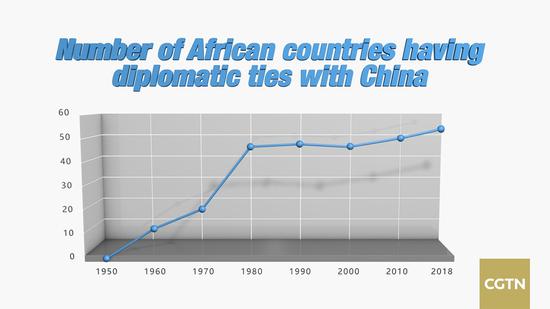
By CGTN's Zhang Tao
Chinese and African leaders will gather in Beijing in early September for a summit of the Forum on China-Africa Cooperation (FOCAC). With diplomatic ties established between China and 53 African countries, bilateral exchanges have reached unprecedented levels.
This is remarkable, given the fact that the two sides only started building diplomatic relations a little over six decades ago, though casual and unsustained communication did exist in ancient times.
Early contact
Initial contact between China and Africa dated back to the mid-8th century during China's Tang Dynasty (618-907), some 1,260 years ago. Du Huan, captured by the Arabs in the Battle of Talas in 751, later traveled across many places in West Asia and North Africa. He returned to China in 762 and wrote a book about his journey. Du was the first known Chinese to have arrived in Africa.
Similarly, Moroccan explorer Ibn Battuta traveled to China in the 14th century and then returned to North Africa with stories of the East.
In contrast to individual travelers like Du and Battuta, Chinese navigator Zheng He in the Ming Dynasty (1368-1644) led trade envoys and reportedly reached the eastern and southern Africa coastal region four times, sowing the initial seeds for China-Africa friendship, and carving out an ancient maritime Silk Road trade route.
Authorized by the Yongle Emperor, Zheng's expeditions in the early 15th century were the first official contact between China and Africa.
Mutual support
During the first 30 years after the founding of the People's Republic of China (PRC) in 1949, Beijing established diplomatic ties with a large number of African countries, starting with Egypt in 1956. By 1980, diplomatic relations had been forged between China and 45 African countries.
The period coincided with a time when African countries fought for their independence against colonial powers. China vigorously supported them in their cause and helped them develop their economies and consolidate their independence.
From December 1963 to June 1965, then Chinese Premier Zhou Enlai paid official visits to 11 countries in Africa.
Financed and built by China from 1970 to 1976, the Tanzania-Zambia Railway covers a total length of 1,860.5 kilometers running from Tanzania's Dar es Salaam in the east to New Kapiri Mposhi in central Zambia in the west. It is viewed as a monument to China-Africa friendship.
In the meantime, many African countries supported China in its efforts to get its lawful seat in the United Nations restored. On October 25, 1971, the 26th session of the UN General Assembly adopted Resolution 2,758 to restore the PRC's lawful seat with a landslide majority. A total of 78 countries voted in favor, including 26 "Yes" votes by African countries.
The Taiwan issue has been a key factor in bilateral ties between China and African countries over the past decades. Beijing has repeatedly stressed that the one-China principle is the fundamental prerequisite and political foundation for the PRC to establish and develop relations with any country.
Over the years, a growing number of African countries have cut ties with Taiwan and established diplomatic relations with China, though not without twists and turns.
After China and Burkina Faso resumed diplomatic ties in May, there is only one country on the continent without diplomatic relations with China: eSwatini (previously known as Swaziland).
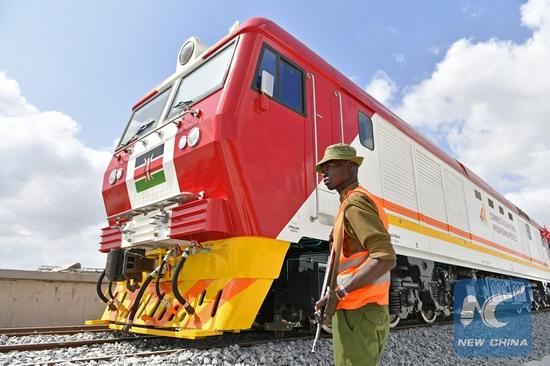
Practical cooperation
In addition to mutual political support, economic cooperation between China and Africa has been gaining momentum since the late 1970s and the early 1980s as China kicked off its reform and opening up. The launch of the FOCAC mechanism in 2000 further accelerated their practical cooperation in various areas.
China-Africa trade volume grew from a mere 765 million US dollars in 1978 to 170 billion dollars in 2017, an increase of more than 200 times. By the end of 2016, China's investment in Africa reached over 100 billion US dollars, growing over 100 times in a dozen years.
Some 3,100 Chinese enterprises have invested in Africa, working on projects in areas of transport, electricity, telecommunications, industrial parks, agricultural technology centers, water supply, schools and hospitals.
Last year, a 480 km China-funded railway opened to connect Nairobi and Mombasa, reducing traveling time between Kenya's two biggest cities by half and creating 46,000 jobs.
In 2015, China announced 10 major plans for China-Africa cooperation to help the continent speed up industrialization and agricultural modernization.
Moreover, some 600 years after Zheng He's voyages, a modern Silk Road is taking shape between China and Africa, injecting new impetus to bilateral cooperation.
Proposed by Chinese President Xi Jinping in 2013, the Belt and Road Initiative comprises the Silk Road Economic Belt and the 21st Century Maritime Silk Road, and aims to build trade and infrastructure networks connecting Asia with Europe and Africa along and beyond the ancient Silk Road routes.
China-Africa cooperative projects such as the electrified railway connecting landlocked Ethiopia with Djibouti, the Mombasa-Nairobi standard gauge railway in Kenya, the Maputo Cross-sea Bridge in Mozambique and various industrial zones established in recent years, have been a reflection of the successful cooperation under the initiative.
According to Chinese State Councilor and Foreign Minister Wang Yi, the upcoming FOCAC Beijing summit will further dovetail the initiative with Africa's development.
"We believe that with the joint efforts of China and Africa, the Beijing summit will be a great success and establish a new historical monument of China-Africa friendly cooperation," he said at a press briefing last week.









